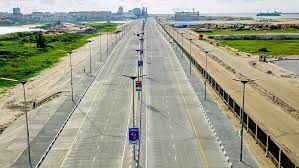Abuja — The Federal Executive Council (FEC) has approved major road contracts and revisions worth over ₦400 billion to accelerate upgrades across Nigeria’s highway network, Minister of Works Dave Umahi said on Thursday after the Council meeting presided over by President Bola Tinubu.
Umahi said he presented 11 memos: nine seeking scope and cost reviews of inherited projects and two for fresh contracts.
New approvals & key revisions
- Lagos–Ibadan Expressway (Phase 2, Section 2): ₦43bn to fix failed sections and complete underpasses and ramps.
- Mushin–NNPC Junction–Papa Oshodi Expressway (dualisation): revised from ₦11bn to ₦19bn due to cost differentials.
- Sokoto–Badagry Superhighway (Section 3): 162.97km from Badagry through Ogun to the Oyo border at ₦3.39bn/km.
- Ilorin–Omu Aran–Egba Road (216km): phased delivery — 31km in Phase 1 at ₦43bn; remaining 184km to follow as funding improves.
- East–West Road (Phase 1): redesign to enhance traffic flow and pavement strength; cost retained at ₦156bn for dual carriageways and bridges.
- Ota–Idi-Iroko Road (Ogun): redesign to rigid concrete pavement plus an extra bridge; cost review from ₦38bn to ₦52bn.
- Jos–Turunkun–Maraban–Jama’a Road (Kaduna): ₦30bn for rehabilitation.
- Ijebu–Ibu Ete–Egba–Owena Road (Ogun/Ondo): ₦53bn for reconstruction.
- Old Enugu–Onitsha Road: scope reviewed for funding and design adjustments.
Umahi added that several state governments have elected to take over federal road projects within their jurisdictions to ease funding pressure and speed delivery timelines.
Concrete-first policy
Reaffirming the administration’s concrete-based construction policy, the minister said rigid pavements offer longer life-cycle value and better resistance to axle loads and flooding compared with flexible asphalt.
“Our focus remains delivering durable road infrastructure to support economic growth and ease of movement across the federation,” Umahi said, noting that redesigns prioritize pavement strength, drainage, and traffic efficiency.
The approvals form part of the Tinubu administration’s transport push to reduce journey times, lower logistics costs, and improve market access across corridors linking South-West, North-Central, and South-East regions.





















